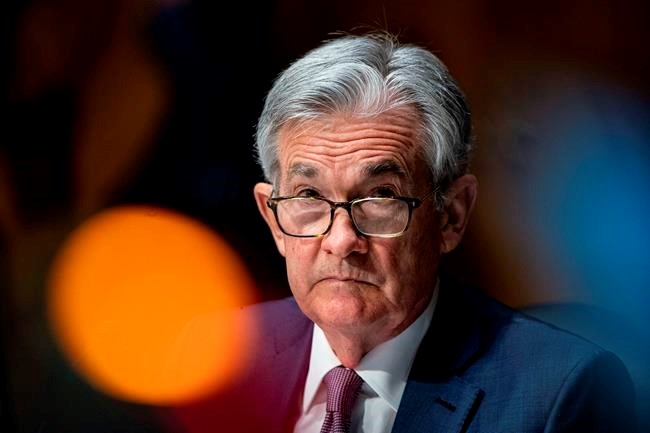WASHINGTON — Federal Reserve officials were convinced last month that the U.S. economy and job growth had slowed as coronavirus cases surged across the country, noting that the outlook is heavily dependent on the course of the virus.
The minutes of the Fed's January discussions show officials believed that the ongoing public health crisis is still posing “considerable risks” to the economy.
The minutes, released Wednesday, reflect widespread Fed support for the central bank's policy of emphasizing ultra-low interest rates to boost the economy and help millions of Americans regain lost jobs.
“Members agreed that the Federal Reserve was committed to using its full range of tools to support the U.S. economy in this challenging time," according to the minutes, which covered the Fed's discussions at its Jan. 26-27 meeting.
The minutes note some improvement in the economy's medium-term outlook as distribution of vaccines ramped up and Congress passed a $900 billion relief measure that provided more direct payments to individuals and expanded unemployment benefits.
At its January meeting, the Fed kept its benchmark interest rate at a record low of zero to 0.25% and pledged to keep pursuing its low-interest rate policies until an economic recovery is well underway.
The Fed does not meet again until March 16-17. Fed Chairman Jerome Powell, however, will appear before Congress next week to deliver the central bank’s semi-annual monetary report to the Congress, an appearance financial markets will be following closely for any clues of the Fed’s future moves on interest rates.
The Fed has
Analysts said the minutes indicate no change from the Fed's emphasis on keeping rates low until the economy has recovered.
Paul Ashworth, chief economist at Capital Economics, said he believes the Fed will not start to reduce its monthly bond purchases until next year and that the first Fed rate hike will not come until 2024.
Charlie Ripley, senior investment strategist for Allianz Investment Management, said that the main takeaway from the minutes is that “accommodative monetary policy will remain in place for the foreseeable future.”
The minutes show that Fed staff updated Fed officials on their assessment of the stability of the U.S. financial system. The staff noted that some financial-market assets had elevated valuations.
“The staff assessed vulnerabilities associated with household and business borrowing as notable, reflecting increased leverage and decreased incomes and revenues in 2020,” the minutes said.
But the staff presentation said that banks have continued to maintain significant levels of high-quality assets and stable sources of funding should loan losses begin to mount.
In remarks last week to the Economic Club of New York, Powell emphasized the Fed’s commitment to reduce unemployment to multi-decade lows.
Powell said while the early recovery last year, helped by nearly $4 trillion in government support, had been surprising, the country was “still very far from a strong
The government on Wednesday reported the biggest monthly gain in wholesale prices in more than a decade. That news followed a report last week that consumer prices rose in January at their fastest pace in four months.
Powell has cautioned that inflation, which has been a no-show for the past decade, could accelerate for a time in coming months as the country opens up. But he and many private economists believe this will be only a temporary rise and not a sign that inflation is getting out of control.
Martin Crutsinger, The Associated Press



